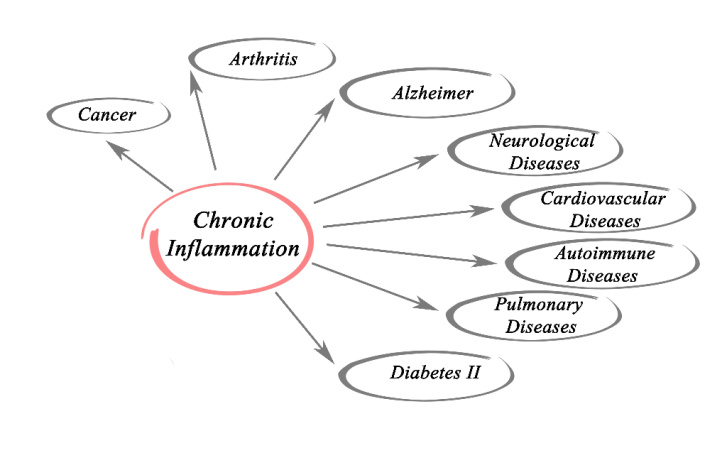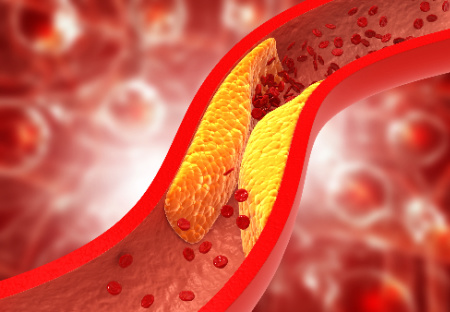Does Eating Sugar Cause Inflammation?
I received several comments from readers telling me that they really didn’t realize how much their current diet was keeping them stuck in the sugar craving cycle. I promised that I would talk next about how eating sugar leads to chronic inflammation and why that is not a good thing.
Inflammation can be extremely helpful and necessary in some situations. If you get sick or injured, acute inflammation can help your body protect and heal itself. Think simply about a little splinter. The tissues around the splinter will inflame in order to allow white blood cells in the area to protect and heal.
When inflammation is chronic and long-term, it’s a whole other story. There are of course lots of factors that can play a part in this type of inflammation, but one of the biggest culprits is sugar. Any type of “itis”, like arthritis, cystitis, colitis or inflammatory bowel condition like IBS/D or Crohn’s all have chronic inflammation in common.


Some folks tell me that they don’t eat a lot of sugar, but, what they may not be aware of, is just how much sugar is added to the majority of processed foods. Pasta and bread are more examples of foods that convert to glucose very quickly after eating. Some breads (read the label) even have sugar added!
So, maybe you don’t have a “sweet tooth” like I did and aren’t currently eating chocolate covered raisins by the bucket full, but maybe you are getting an abundance of sugars from processed foods, pastas, breads and juices to name a few.
Think about what you are eating on a regular basis and how is it adding to your sugar intake. I would love to hear what you discover.
Now, let’s talk about why sugar can be such a factor in inflammation and the effects this can have on your body.
The Link Between Sugar and Inflammation
According to the results of several studies, cited here from PubMed, there’s a strong link between added sugars and inflammation. The more sugar you consume, the higher you can expect your inflammatory markers to be.
In a small-scale study, drinking 40g (10 teaspoons) of added sugar in a can of soda every day for 6 months increased the amount of uric acid in the body, especially for people who were already overweight. This is very important since high amounts of uric acid led to crystals forming in the joints and tendons leading to high-level inflammation.


Here’s the good news! Studies have also suggested that cutting back on sugary foods and drinks can decrease levels of inflammatory markers. This is crucial, as it indicates that you can reduce inflammation and improve your health if your diet isn’t loaded with added sugars. Look back to the last newsletter for help with that.
How Added Sugars Affect Your Body
So, what does sugar actually do to your body to encourage development of inflammation?
Here are a few of the things that can happen if your diet is full of refined/processed sugars, especially if your diet is unhealthy in other ways, too:


Increased gut permeability: Eating a lot of sugar may affect the permeability of the intestinal walls. This means that undigested food particles, toxins, and bacteria can pass through into the bloodstream. When this happens, they’re treated as foreign invaders in the body. The end result? Inflammation can run rampant. Fructose is a common culprit for a “leaky” gut.
Formation of AGEs: Advanced glycation end products (AGEs) are created as a result of protein and fat mixing with sugar in your bloodstream. If there are too many AGEs in your body, oxidative stress and inflammation are more likely. I like to use the analogy of putting nicely sweetened bread in the toaster like Dave’s Killer Bread! What is happening as it gets all dark and crispy is the formation of AGEs. The bonding between the wheat protein and the added sugars. We do not want this in our arteries!
Weight gain: Refined sugars are a major culprit in weight gain and obesity. This helps increase inflammation levels in the body. Sugar and artificial sweeteners are also likely to stop you from feeling full, even if you’re eating a ton of food (and consuming a whole heap of calories!). This can lead to overeating and weight gain.
Greater risk of heart disease: Some studies have shown a link between high sugar intake and a greater risk of developing heart disease — especially for sugary drinks. A study of 75,000 women found that a sugar and carb-heavy diet raised the risk of heart disease, probably due to the effects on cardiovascular health, insulin resistance, and inflammatory markers.
More potential for type 2 diabetes: Eating lots of sugar can make you more likely to develop type 2 diabetes. According to one study, having one sugary drink per day can raise your risk factor by almost 20%.
More potential for type 3 diabetes: This is sometimes referring to Alzheimer’s and other forms of dementia. Again related to inflammation and permeability in the blood brain barrier as well as insulin resistance impacting the brains ability to obtain fuel.
